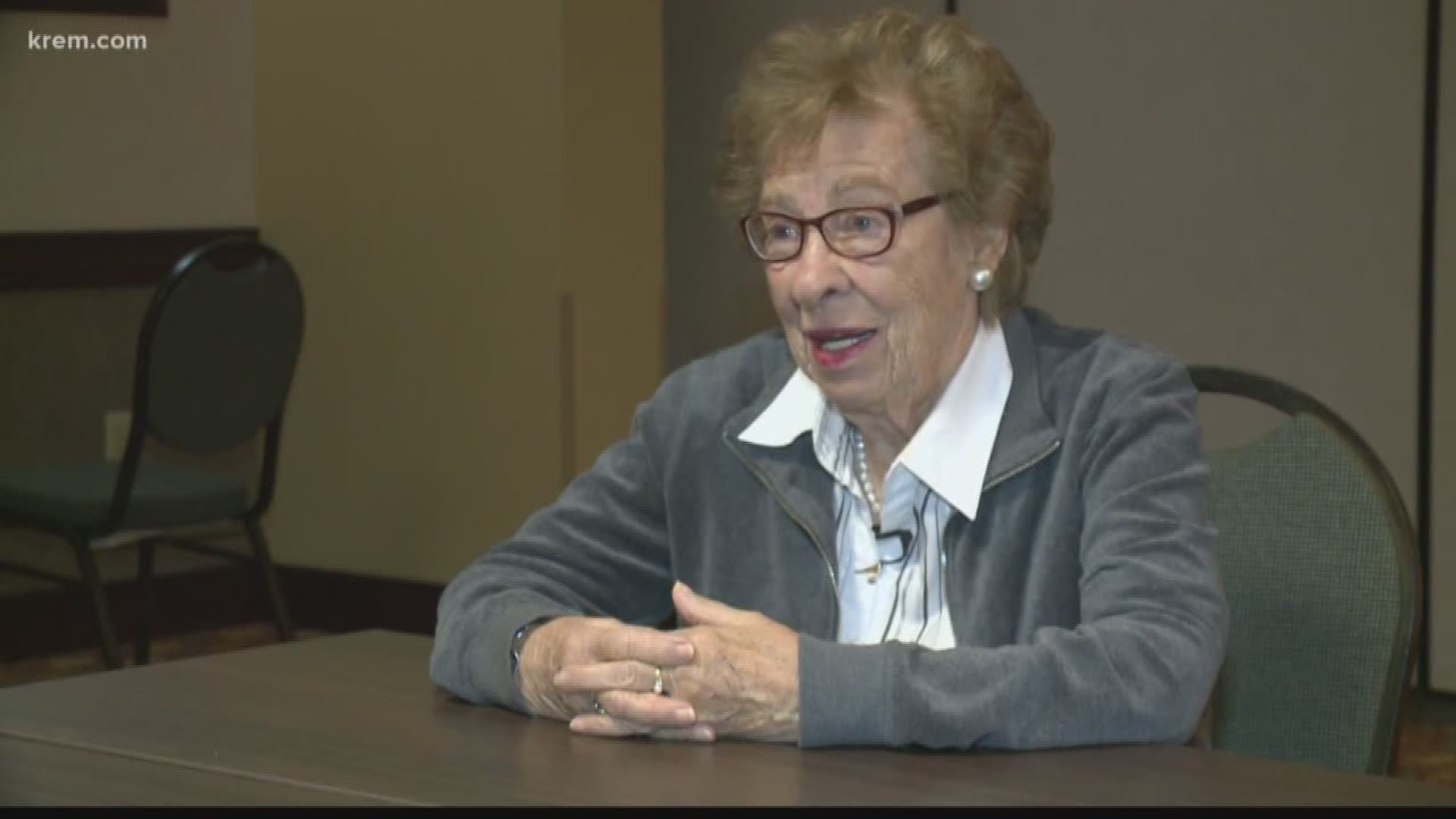SPOKANE, Wash. — Eva Schloss, Holocaust survivor and Anne Frank's step sister, will speak at the Spokane Convention Center Thursday night to talk about her experiences at concentration camps during World War II.
Schloss sat down with KREM 2 ahead of the event for questions on her life experiences.
Q: How did your story begin? Take us back to some of your earliest memories of the time.
A: I was nine years old when my family went to Holland from Austria. We hoped to live there. But, of course, when the Nazis came, they persecuted my brother. We were there for two years, but the Nazis forced us to Auschwitz, a concentration camp. That was like a death sentence. I was a lot soul really. I hated everybody, not just the Germans, but everybody. I realized that could have been avoided if more countries would have taken in Jews.
Q: What are the memories like that you have from your time as a child and teenger?
A: Well, I didn't speak about what happened to me, to my family for 40 years, but it was with me. I had nightmares. I dreamt about it. For many, many years I was shy. If you're being told when you're a young child that your life isn't worth anything or that you should really be killed, something sticks. So I had no confidence in myself.
Q: When did you decide to start telling your story publicly?
A: Just by luck, I started to speak. I was asked to come somewhere and started to speak. It is much easier as you start to talk about things. An American writer wrote a play about Anne Frank (And They Came for Me) and asked that I travel with them for the showings. Then they just asked me to come tell my story without the play. I started to tell people, and they would say, 'You have such an interesting story. You should write a book,' which I did, Eva's Story. I tells the whole story of Auschwitz and what happened there. I have a horrific story, but I still have hope for the future.
Q: As you're speaking to people, what is the one message you're hoping your life story tells them?
A: Now, I travel twice a year across countries. We can get anywhere up to 2,500 people in a crowd. And it's developed bigger and bigger. But I want people to know that we should not be bystanders like the Germans were. Not all the Germans agreed with Hitler, but there were bystanders who didn't care. And this is what we must not be. We must get involved in what is going on around us and speak up. It's more relevant now than perhaps it was 50 years ago. The hatred, the discrimination is there, and if we are not careful, it might become bigger.

